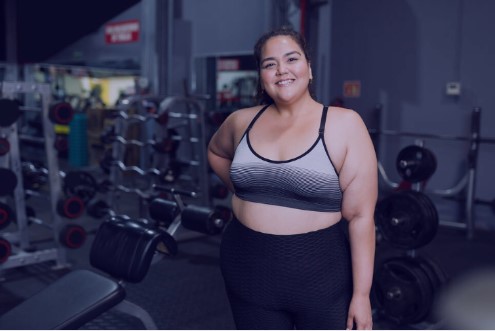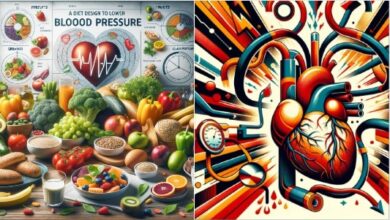How to Lose Weight Fast

How to Lose Weight Fast begins with understanding your body’s needs and creating a balanced approach. As a weight loss specialist, I emphasize the importance of combining a nutritious diet, regular exercise, and sustainable lifestyle changes. It’s not just about shedding pounds quickly; it’s about making lasting health improvements. Tailoring your plan to your unique situation is key to success.
Table of Contents
Methods for those who want to know: How to Lose Weight Fast
Caloric Deficit Diet: Consuming fewer calories than your body burns, leading to weight loss.

Intermittent Fasting: Cycling between periods of eating and fasting to reduce calorie intake.
Low-Carb Diets: Reducing carbohydrate intake, often leading to immediate water weight loss.
Ketogenic Diet: A high-fat, low-carb diet that can rapidly induce weight loss.
Increased Protein Intake: Higher protein consumption can boost metabolism and reduce appetite.
Eliminating Processed Foods: Focusing on whole, unprocessed foods for better nutrition and easier weight loss.

Drinking More Water: Staying hydrated can aid in weight loss and reduce hunger.
Regular Exercise: Combining cardio and strength training to increase calorie burn.
High-Intensity Interval Training (HIIT): Short bursts of intense exercise can lead to more calories burned in less time.
Portion Control: Eating smaller portions to reduce overall calorie intake.
Meal Replacement Shakes: Using shakes as a low-calorie alternative to meals.
Detox/Cleanses: Short-term diets that flush toxins and often result in quick weight loss.

Mindful Eating: Being more mindful of eating habits to prevent overeating.
Getting Adequate Sleep: Proper sleep can regulate hormones that control hunger.
Stress Management: Reducing stress to prevent stress-induced overeating or weight gain.
Weight Loss Medications: In some cases, medications may be prescribed to aid in weight loss.
Surgical Options: In extreme cases, options like bariatric surgery are considered.
Remember, while some of these methods can result in quick weight loss, it’s important to consider their sustainability and potential impact on overall health. It’s always recommended to consult with a healthcare professional before starting any new weight loss regimen.

How to Jump Start Weight Loss Safely
Losing weight can often seem like a daunting task. Yet, with the right approach, it's achievable and can significantly enhance your health and well-being. This article will guide you through various strategies to lose weight effectively and sustainably.
To jump-start weight loss safely, it’s essential to adopt a holistic approach that combines healthy eating, exercise, and lifestyle modifications. Begin by gradually reducing calorie intake while focusing on nutrient-rich foods like fruits, vegetables, lean proteins, and whole grains. This ensures your body gets the necessary vitamins and minerals without excessive calories. Incorporating regular physical activity, such as brisk walking, cycling, or swimming, can boost metabolism and aid in burning fat more efficiently. It’s also important to stay hydrated, as water plays a crucial role in metabolism and appetite control.
Adequate sleep and stress management are crucial, as they can significantly impact eating habits and weight. Always avoid drastic calorie restrictions or overexertion in exercise, as these can be counterproductive and harmful. Remember, the key to sustainable weight loss is gradual change. It’s advisable to consult a healthcare professional or a dietitian to tailor a plan that suits your individual health needs and goals.
How to Lose Weight Fast involves understanding key criteria essential for effective weight loss. This list covers vital aspects like caloric deficit, balanced diet, regular exercise, and more, crucial for achieving your goals safely and sustainably.
Caloric Deficit - 88%
Balanced Diet - 93%
Regular Exercise - 88%
Consistency - 96%
Hydration - 89%
Adequate Sleep - 88%
Stress Management - 93%
Realistic Goals - 95%
Portion Control - 93%
Reducing Processed Foods - 90%
Mindful Eating - 90%
Support System - 93%
Patience - 97%
92%
Score
Overall, this list offers a comprehensive and realistic guide for those looking to embark on a weight loss journey, underscoring the importance of sustainable practices and a balanced approach to health and well-being. It's essential to remember that weight loss is a personal journey, and what works for one person might not be as effective for another. We encourage our readers to share their own experiences, thoughts about diet and weight loss, and to choose the criteria that resonate most with their individual goals and lifestyle.
Setting Realistic Goals
When embarking on a weight loss journey, it's crucial to set achievable goals. Understand the difference between short-term and long-term goals and focus on sustainable practices to ensure lasting results.
Setting realistic goals is a fundamental step in any successful weight loss journey. It’s important to differentiate between short-term and long-term goals. Short-term goals might include weekly objectives like incorporating more vegetables into your diet or walking a certain number of steps each day. These small, achievable targets can provide a sense of accomplishment and keep you motivated.
Long-term goals, on the other hand, focus on more significant, overarching achievements, such as losing a specific amount of weight over several months or improving overall health markers like blood pressure or cholesterol levels. Both types of goals should be specific, measurable, attainable, relevant, and time-bound (SMART).
It’s also essential to be realistic about the pace of weight loss; rapid loss can often be unsustainable and unhealthy. A steady, gradual approach not only helps in achieving weight loss but also in maintaining it in the long run. Remember, the journey towards weight loss is not just about the numbers on the scale but also about adopting healthier lifestyle habits and improving overall well-being.

Nutrition and Diet
A key component of weight loss is managing your diet. Learn about creating a caloric deficit, adopting healthy eating habits, and incorporating superfoods that aid in weight loss.
In the journey of “How to Lose Weight Fast” the pivotal role of nutrition and diet cannot be overstated. Central to this process is the creation of a caloric deficit, which means consuming fewer calories than your body burns daily. This doesn’t necessitate drastic dieting but rather a shift towards more mindful eating. A balanced diet, rich in nutrient-dense foods like fruits, vegetables, lean proteins, and whole grains, is crucial. Such a diet not only facilitates weight loss but also nourishes your body.
Furthermore, incorporating specific superfoods known for their weight loss benefits can be highly effective. These include foods like berries, nuts, seeds, and green leafy vegetables, which are packed with essential nutrients and can help boost your metabolism. By focusing on these dietary elements, you set the stage for a healthier, more sustainable approach to losing weight quickly, ensuring your body gets the right balance of nutrients while you work towards your weight loss goals. How to Lose Weight Fast. What’s the Best Diet to Lower Blood Pressure?

Exercise and Physical Activity
Physical activity is essential for weight loss. This section covers the benefits of cardiovascular exercises, strength training, and maintaining consistency in your workout routine.
In the quest to “How to Lose Weight Fast” exercise and physical activity play a crucial role. Engaging in regular physical exercise is indispensable for burning calories and enhancing overall health, which significantly contributes to weight loss. Cardiovascular exercises such as jogging, swimming, or cycling are highly effective in burning a substantial number of calories, which is essential for creating the caloric deficit needed for weight loss.
In addition to cardio, strength training is equally important. It helps build muscle, and the more muscle you have, the higher your resting metabolic rate, meaning you burn more calories even when at rest. Consistency in your workout routine is key; it’s not just about the intensity of the workouts but also the regularity with which you exercise. By maintaining a consistent exercise regimen that includes both cardiovascular and strength training elements, you can accelerate your weight loss journey, ensuring it is effective, efficient, and aligned with your health goals.

Lifestyle Changes
Weight loss isn't just about diet and exercise. It also involves making significant lifestyle changes, such as getting adequate sleep, managing stress, and staying hydrated.
When focusing on “How to Lose Weight Fast” it’s imperative to recognize that weight loss extends beyond diet and exercise; it encompasses comprehensive lifestyle changes. Achieving and maintaining a healthy weight isn’t solely about what you eat or how much you exercise, but also about nurturing other aspects of your life. Adequate sleep, for instance, plays a critical role in weight management. Quality sleep regulates hormones that control appetite, making it easier to maintain healthy eating habits.
Managing stress effectively is another crucial factor; high stress levels can lead to emotional eating and weight gain. Techniques like meditation, yoga, or even simple breathing exercises can greatly assist in stress reduction. Additionally, staying well-hydrated is essential. Drinking enough water aids in digestion, helps regulate appetite, and can even boost metabolism, all of which are beneficial in a weight loss journey. By embracing these lifestyle changes, you create a holistic environment that supports your goals to lose weight fast, ensuring that your efforts in diet and exercise are complemented and maximized. How to Lose Weight Fast? Golf for Beginners: Getting Started

Avoiding Common Pitfalls
Avoid falling into the trap of fad diets and quick fixes. Understand the risks of unrealistic expectations and the dangers of yo-yo dieting.
In the pursuit of “How to Lose Weight Fast” it’s crucial to be aware of and avoid common pitfalls that can derail your efforts. One of the biggest traps is the allure of fad diets and quick fixes. These diets often promise rapid weight loss but are usually unsustainable and can lead to health issues. They might restrict essential nutrients or involve extreme calorie cuts, which not only makes them hard to maintain but can also harm your body. Unrealistic expectations are another significant pitfall.
Setting goals that are too ambitious can lead to disappointment and a sense of failure, which can demotivate you and derail your weight loss journey. Additionally, beware of the dangers of yo-yo dieting – repeatedly losing and regaining weight. This pattern can negatively affect your metabolism and overall health. Understanding these risks and approaching weight loss with a mindset focused on sustainable, healthy lifestyle changes is key to achieving long-term success in your goal to lose weight fast.

Monitoring Progress
Keep track of your weight loss journey and be ready to adjust your plan as needed. This section provides tips on how to effectively monitor your progress.
In the process of “How to Lose Weight Fast,” monitoring your progress is an essential step that can significantly impact your success. Keeping a detailed track of your weight loss journey helps you understand what works and what doesn’t, allowing you to make necessary adjustments to your plan. Regularly weigh yourself, but remember that scale numbers are not the only indicator of progress. Measuring body fat percentage, taking body measurements, and observing how your clothes fit can provide a more comprehensive view of your weight loss.
Additionally, tracking your food intake and physical activity can be incredibly insightful. Using a food diary or a fitness app can help you stay accountable and ensure you’re sticking to your diet and exercise goals. It’s also important to note how you feel physically and mentally. Increased energy levels, improved sleep, and a better mood are all positive signs of progress. By effectively monitoring these aspects, you gain valuable insights into your health and weight loss journey, enabling you to fine-tune your approach and stay on track with your goal to lose weight fast.

Seeking Professional Advice
Sometimes, seeking advice from a dietician or a personal trainer can be beneficial. Learn when it's appropriate to seek professional help.
In the journey of “How to Lose Weight Fast,” seeking professional advice can be a pivotal step towards achieving your goals effectively and safely. While there is a wealth of information available, a dietician or a personal trainer can provide personalized guidance tailored to your specific needs and circumstances.
A dietician can help you understand your nutritional requirements and devise a balanced diet plan that aligns with your weight loss goals. They can offer insights on portion control, healthy food choices, and how to manage cravings. Meanwhile, a personal trainer can develop a customized exercise regimen that suits your fitness level and targets your weight loss objectives.
They can also ensure that you are performing exercises correctly and safely, maximizing their effectiveness and reducing the risk of injury. Seeking professional help is particularly advisable if you have pre-existing health conditions, have struggled with weight loss in the past, or if you’re not seeing results despite your efforts. These experts can help you navigate the challenges of losing weight fast, ensuring that your approach is both effective and sustainable. How to Lose Weight Fast
Success Stories
Get inspired by real-life success stories and the lessons they offer for anyone looking to lose weight.
Conclusion: How to Lose Weight Fast
We summarize the key points and encourage you to maintain your efforts for a healthier lifestyle. learning how to lose weight fast involves a combination of diet, exercise, and lifestyle changes. While quick weight loss can be appealing, it’s crucial to focus on sustainable methods that promote long-term health and well-being. Incorporating a balanced diet, regular physical activity, and healthy lifestyle habits like adequate sleep and stress management are key components. How to Lose Weight Fast
It’s also important to avoid extreme diets and unrealistic expectations, as they can lead to yo-yo dieting and other health issues. Always remember that each individual’s journey is unique, and what works for one person may not work for another. Consulting with healthcare professionals can provide personalized guidance tailored to your specific needs. Ultimately, the goal of weight loss should not just be about shedding pounds quickly but about making lasting changes that improve your overall quality of life.
Your insights and personal stories can inspire and guide others in their journey towards healthier living. What aspects of this list do you find most crucial for your weight loss journey? Let's discuss and learn from each other's experiences.
FAQ: How to Lose Weight Fast
Question 1: What is the fastest way to losing weight?
Answer 1: The fastest way to lose weight involves a combination of a strict, reduced-calorie diet and increased physical activity. This typically includes following a calorie-restricted diet that focuses on whole, unprocessed foods, and engaging in regular exercise, particularly high-intensity workouts.
However, it’s important to note that while rapid weight loss can be achieved, it’s often not sustainable or healthy in the long term. Quick weight loss can lead to muscle loss, nutritional deficiencies, and can even slow your metabolism.
For long-lasting results, a gradual and steady approach to weight loss that includes sustainable lifestyle changes is generally recommended. It’s always best to consult with a healthcare professional before beginning any rapid weight loss plan to ensure it’s safe and appropriate for your individual health needs. How to Lose Weight Fast
Question 2: How to lose weight in 7 days?
Answer 2: Losing weight in 7 days can be challenging, but it’s possible to see some initial results by making specific changes to your diet and exercise routine. Here are some steps you can take:
Adopt a Clean Diet: Focus on eating whole, unprocessed foods. Increase your intake of vegetables, lean proteins, and fruits, and reduce carbohydrates, especially refined carbs and sugars.
Caloric Deficit: Aim for a moderate caloric deficit. This means consuming fewer calories than you burn, but not so few that it leads to extreme hunger or nutrient deficiencies.
Increase Water Intake: Drinking more water can help reduce appetite and increase metabolism. Aim for at least 8 glasses a day.
Intensify Workouts: Incorporate more vigorous exercise or high-intensity interval training (HIIT) to burn more calories. However, be cautious not to overdo it, especially if you’re not used to intense workouts.
Reduce Sodium Intake: Lowering your salt intake can help reduce water retention and bloating.
Get Plenty of Sleep: Aim for 7-8 hours of quality sleep per night, as poor sleep can affect your metabolism and hunger hormones.
Avoid Alcohol and High-Calorie Beverages: Stick to water, herbal teas, and other low-calorie drinks.
While these steps can help initiate quick weight loss, it’s important to maintain realistic expectations. A significant portion of the weight lost in a short period is often water weight, not fat. Also, rapid weight loss can be unsustainable and potentially unhealthy. For lasting results, adopting long-term healthy lifestyle changes is more effective. Always consider consulting with a healthcare professional before starting any rapid weight loss plan. How to Lose Weight Fast
Question 3: How can I lose fat ASAP?
Answer 3: To lose fat as quickly as possible, you need to focus on strategies that combine diet, exercise, and lifestyle changes. Here are some effective methods:
Caloric Deficit: The most crucial factor in fat loss is to consume fewer calories than your body burns. Calculate your daily caloric needs and reduce your intake, but ensure it’s sustainable and not too drastic.
High-Protein Diet: Increase your protein intake. Protein-rich foods can enhance feelings of fullness, reduce appetite, and prevent muscle loss during weight loss.
Cut Down on Carbs: Reducing your carbohydrate intake, especially refined carbs and sugars, can lead to a reduction in body fat. Consider a low-carb or ketogenic diet for more significant results.
Strength Training: Incorporate strength training exercises into your routine. Muscle mass burns more calories than fat, even at rest, which can aid in fat loss.
Cardiovascular Exercise: High-intensity interval training (HIIT) and steady-state cardio (like running, cycling) can effectively burn calories and fat.
Stay Hydrated: Drink plenty of water throughout the day. It helps in metabolism and might aid in reducing unnecessary calorie intake.
Sleep and Stress Management: Ensure adequate sleep and manage stress levels. Poor sleep and high stress can negatively impact your metabolism and fat loss efforts.
Avoid Processed Foods: Minimize the intake of processed foods, which are often high in calories, sugars, and unhealthy fats.
Consistent Eating Habits: Stick to regular meal times and avoid late-night snacking or binge eating.
Track Your Food Intake: Keeping a food diary or using a calorie tracking app can help you stay accountable and monitor your progress.
Remember, while losing fat quickly is a common goal, it’s essential to pursue it in a healthy, sustainable way. Rapid weight loss can sometimes lead to health issues and is often difficult to maintain. Gradual, consistent fat loss is more sustainable and healthier in the long run. Always consult with a healthcare professional before making significant changes to your diet or exercise routine. How to Lose Weight Fast
Question 4: How can I speed up my weight loss?
Answer 3: To speed up your weight loss, it’s important to implement strategies that enhance your diet and exercise routine effectively. Here are some tips:
Increase Physical Activity: Intensify your workouts or increase their frequency. Incorporate both cardio and strength training for optimal results. High-Intensity Interval Training (HIIT) can be particularly effective for burning a high number of calories in a short period.
Refine Your Diet: Focus on a diet rich in whole, unprocessed foods. Increase your intake of high-protein foods, vegetables, and fruits, and reduce high-calorie, low-nutrient foods.
Track Your Calorie Intake: Use a food diary or a calorie tracking app to ensure you maintain a caloric deficit. Be mindful not to reduce calories too drastically, as it can be counterproductive.
Stay Hydrated: Drinking water before meals can reduce appetite and help with portion control. Also, replacing high-calorie drinks with water cuts down overall calorie intake.
Improve Sleep Quality: Adequate sleep is essential for weight loss. Poor sleep can affect hormones that regulate appetite and metabolism.
Manage Stress: High stress can lead to emotional eating and weight gain. Practice stress-reduction techniques like meditation, yoga, or deep breathing exercises.
Eat Mindfully: Pay attention to what and when you eat. Avoid distractions while eating, chew your food thoroughly, and listen to your body’s hunger cues.
Incorporate Intermittent Fasting: Intermittent fasting involves cycling between periods of eating and fasting. It can help reduce calorie intake and increase weight loss.
Avoid Liquid Calories: Cut down on sugary drinks, alcohol, and high-calorie coffee beverages, which can contribute significantly to calorie intake.
Seek Professional Guidance: Consider consulting a dietitian or a personal trainer who can provide personalized advice and adjust your diet and exercise plan for optimal results.
Remember, while it’s natural to want fast results, sustainable weight loss usually occurs gradually. Rapid weight loss can sometimes lead to health problems and is often difficult to maintain long-term. Prioritize safe and healthy methods to achieve lasting weight loss. How to Lose Weight Fast







